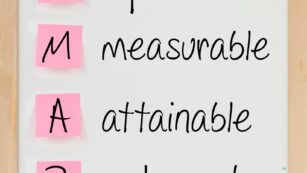Setting goals is a powerful practice that drives motivation and success, but knowing which questions to ask oneself during the process can truly transform aspirations into achievements. Effective goal setting isn’t just about identifying what one wants to accomplish; it involves a deep dive into the why and how of those ambitions. By crafting the right questions, individuals can uncover a more profound understanding of their objectives, ensuring they are both meaningful and attainable.
Goal Setting Questions
 Understanding the right questions to ask oneself is crucial in setting effective goals. This helps illuminate the pathways needed to achieve these targets, making them more tangible and attainable.
Understanding the right questions to ask oneself is crucial in setting effective goals. This helps illuminate the pathways needed to achieve these targets, making them more tangible and attainable.
Asking precise goal-setting questions can transform personal growth. These inquiries often prompt individuals to reflect on their desires, values, and the areas where they seek improvement. Examples of these may include questions like, “What skills do I want to develop in the next year?” or “How can I handle stress better?” Such reflections lead to tailored goals that directly address individual growth and satisfaction. The clarity gained from this practice enables a more focused and motivated pursuit of personal objectives, enhancing overall self-awareness and competence.
Impact on Professional Development
In the context of professional development, strategic goal-setting questions play a pivotal role. These questions drive clarity, such as, “What professional milestones do I aim to achieve in the next five years?” or “What steps are necessary to advance to the next level in my career?” Experts agree that answering these questions provides a roadmap for career progression. It fosters a proactive approach to skill acquisition and networking, crucial components for upward mobility.
Types of Goal Setting Questions
Goal setting questions are pivotal in steering individuals and organizations towards achieving their desired outcomes. These queries come in various forms, each tailored to extract specific insights and focus.
Vision-Based Questions
 Vision-based questions delve into the broader aspirations and long-term objectives. They align daily tasks with overarching goals to provide substantial motivation and direction. Examples include “What do you want to achieve in the next five years?” or “How do your personal values align with your career goals?” These questions help individuals map out a detailed life or career path, ensuring their actions align with a broader purpose. If someone sees their future self in a senior leadership role, they might foster skills and relationships pertinent to this vision.
Vision-based questions delve into the broader aspirations and long-term objectives. They align daily tasks with overarching goals to provide substantial motivation and direction. Examples include “What do you want to achieve in the next five years?” or “How do your personal values align with your career goals?” These questions help individuals map out a detailed life or career path, ensuring their actions align with a broader purpose. If someone sees their future self in a senior leadership role, they might foster skills and relationships pertinent to this vision.
Performance-Driven Anxiety Questions
Performance-driven questions target specific achievements and milestones, focusing on enhancing results through measurable standards. They often revolve around inquiries such as “What steps will you take to increase your sales numbers by 20% in the next quarter?” or “How can you reduce the client response time by 30%?” These questions prompt individuals to consider their current performance and identify practical improvements.
Crafting Effective Goal Setting Questions
Steering Clear from Common Mistakes
 When formulating goal-setting questions, individuals often stumble over common pitfalls that can undermine the effectiveness of their objectives. To avoid these mistakes, one must focus on specificity, realism, and relevance. Questions that are too vague fail to provide clear direction, limiting one’s ability to achieve the goal. For instance, setting a goal to “get fit” is less effective than aiming to “run a 5K in under 30 minutes by June.” Similarly, setting goals that are unrealistically high can lead to frustration and demotivation. It’s essential to assess one’s current resources and limitations to set achievable goals. Lastly, ensuring the goals are relevant to one’s values and long-term objectives keeps motivation high and prevents the pursuit of unimportant achievements.
When formulating goal-setting questions, individuals often stumble over common pitfalls that can undermine the effectiveness of their objectives. To avoid these mistakes, one must focus on specificity, realism, and relevance. Questions that are too vague fail to provide clear direction, limiting one’s ability to achieve the goal. For instance, setting a goal to “get fit” is less effective than aiming to “run a 5K in under 30 minutes by June.” Similarly, setting goals that are unrealistically high can lead to frustration and demotivation. It’s essential to assess one’s current resources and limitations to set achievable goals. Lastly, ensuring the goals are relevant to one’s values and long-term objectives keeps motivation high and prevents the pursuit of unimportant achievements.
Techniques for Formulating Questions
To craft effective goal-setting questions, one can employ several key techniques. First, use the SMART criteria to ensure goals are Specific, Measurable, Achievable, Relevant, and Time-bound. Questions like, “What specific steps will I take to achieve this goal within the next three months?” help break down the goal into manageable tasks. Additionally, including a reflection aspect in questions encourages deeper thinking about the purpose behind the goals. Questions such as, “How does achieving this goal align with my overall career aspirations?” make it possible to connect daily efforts to larger life ambitions. This technique not only clarifies intentions but also enhances commitment to achieving the set objectives.

